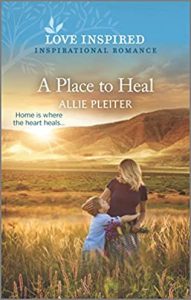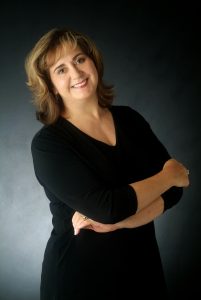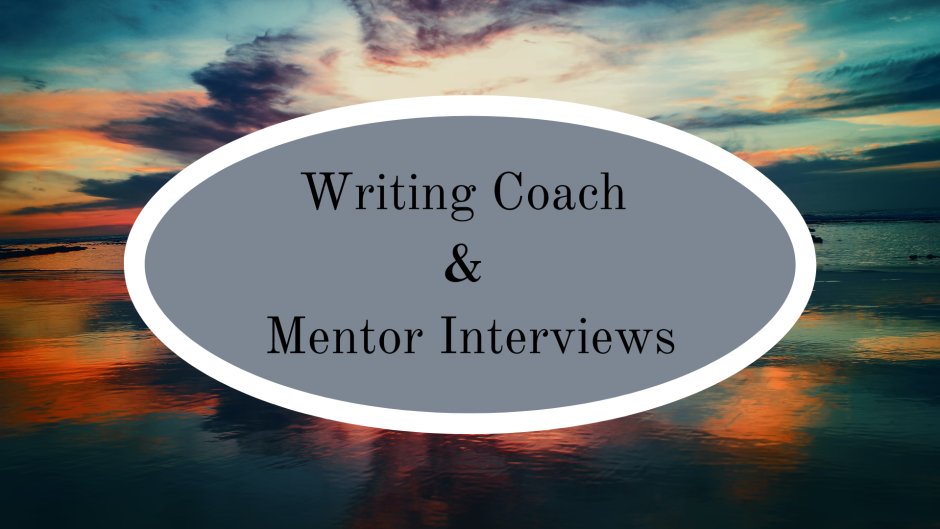Why do you write? Do you have a theme, message, or goal for your books?
While I never set out to be an author, I’ve always been a storyteller. I see the world in stories, I learn in stories, and I think we grow from the stories we hear and the ones we tell ourselves. There is no deliberate theme to all my fiction and nonfiction books, but I would say that all center on the idea that we are capable of more than we know. I want to show people “you can get there from here,” or perhaps “God can get you there from here”—no matter where “here” is and what you are facing.
How long have you been writing?
I began seriously pursing publication in 1997, published my first book in 2001, and now have over 50 published titles to my credit. In fact, I’ll publish my 60th book the week of my 60th birthday later this year!
Tell us about one of your greatest joy(s) in your writing career.
There’s no greater joy than having a reader tell you how you touched their heart or gave them a much-needed boost at a challenging time. I love teaching my productivity method, The Chunky Method and watching the light-bulbs of possibility go off over writer’s heads!
Tell us about one of your darkest moment(s) in your writing career.
I had a friend once say “publishing will hand you a reason to leave every single day.” Most days, the daunting odds, whopping workload, and the sheer flying into the midst required to write a book can drag you down. This is a business where your best weapon is resilience, which is why I published My Daily Momentum to show others the daily journaling practice I use to keep going in the face of writing’s uphill climb.
Rejection is a common experience for writers. How do you overcome rejection? How has rejection shaped you or your career?
Having started life as an actor, I learned very quickly that rejection is an unavoidable part of the process. Until you learn to hear “no” as “not now” or “not here,” it can be tough going. After a twenty-year career, I have enough personal stories of rejections being gifts wrapped in disappointment. But do I still reach for pie or chocolate? You betcha.
In what ways has God led you to coach other writers? Were you surprised when a certain skill or connection led to coaching opportunities?
The Chunky Method came to me from my professional days as a grant-writer, where deadlines and breaking things down into manageable pieces were essential skills. The “ah-ha!” moment for me happened when I realized we can absolutely apply these tactics to art. In fact, applying a personalized structure to art only empowers greater creativity. I take tremendous gratification from unlocking a writing practice for a writer and watching the great work that flows from it. Was I surprised? My writing career has been so packed full of God-surprises that while I was astonished and grateful, I wasn’t startled.
Tell us about a facet of coaching that particularly excites you.
So often people here “you must do this” when talking about writing. “Serious writers write this amount of words or write every day.” Nonsense. What every writer needs is a structure built on how their creative mind works—and that looks different for everyone. I love to watch writers light up when they realize “that’s why _____ is so hard for me” or “now I understand what works for me.” It’s like watching a rocket take off—which is why I call my initial coaching program “The Chunky Launch Package.”
What venues/methods have you found most effective for meeting and coaching writers?
I am a highly extroverted person—rare in the writing world, I know. My favorite is always teaching in person at events (all those lightbulbs going off over all those heads….), but I’ve adapted to our virtual reality and coach more often now over video and phone as well as webinars. Many writers meet me through The Chunky Method Handbook, too.
Have you organized or led groups to support writers? (Retreats, ACFW chapters, etc.) How has that experience helped you to coach writers?
I work extensively with business book coach Cathy Fyock on a weekly on-line writers forum and retreats. I often speak at conferences, ACFW chapters, RWA chapters, and other writers groups. It’s always a great way to introduce writers to the Chunky Method.
Have you organized or directed a writers’ conference? Tell us about that experience, and/or share an anecdote that illustrates how you saw writers being coached and encouraged through the event.
I’ve never organized one myself, but I’m often booked to speak at them.
If you speak at writers’ groups or conferences, what are some of your favorite topics to speak about?
I speak almost as much as I coach and write! Aside from The Chunky Method, I teach craft classes on characterization and dialogue, on fiction skills for non-fiction writers, and several other topics.
What advice do you have for writers as we interact with our peers? What can we do to be better supporters, mentors, and coaches of our fellow writers?
Ditch the comparisons! We’re so quick to line ourselves up—usually wrongly—against others, forgetting that our paths are unique to us. I’ve been speaking a lot this year on professional jealousy, and how that can be such a trap for any artist.
Do you have a favorite resource or two that you recommend to beginning writers?
Well now, I wouldn’t be doing much of a job if I didn’t say The Chunky Method Handbook is my favorite, would I? There are loads of great craft books out there, but I do think writers need to get a solid writing practice established in order to have a successful career.
Do you have a favorite resource or two that you recommend to writers who are struggling with discouragement?
Other than chocolate and pie? My usual advice is this: take 24 hours and allow yourself to yell OUCH. Hurt. Journal out what you’re feeling, pray, whine to friends. Then call it done and get back to the next right step.
What are common mistakes you see aspiring writers make?
Trying to be someone else. Be you. Be authentic, be well-crafted, strive for excellence, but be you. A distinct voice is one of the greatest assets you can have in this business.
What advice can you give aspiring writers that you wished you had gotten, or that you wished you would have heeded?
I got great advice from the beginning: “Allie, hush up and just WRITE.” Nothing begets writing like writing. Reading books on craft or tactics is great, conferences and classes are useful, but if you’re doing that and not writing, it won’t work. There are no substitutes and no shortcuts.
Book Cover:

Purchase link: https://alliepleiter.com/books/true-north-springs/a-place-to-heal/

An avid knitter, coffee junkie and firm believer that “pie makes everything better,” Allie Pleiter writes both fiction and non-fiction working on as many as four novels at a time. The bestselling author of over fifty books, Allie has enjoyed a twenty-year career with over 1.5 million books sold. In addition to writing, Allie maintains an active writing productivity coaching practice and speaks regularly on the creative process, publishing, and her very favorite topic—The Chunky Method of time management for writers. Visit her website at www.alliepleiter.com to learn more.
Instagram: https://www.instagram.com/alliepleiterauthor/
Facebook Page: https://www.facebook.com/alliepleiter
Facebook group (books): https://www.facebook.com/groups/firesidewithallie/
LinkedIn: https://www.linkedin.com/in/allie-pleiter-6a021b139
Twitter: https://twitter.com/alliepleiter
Goodreads: https://www.goodreads.com/author/show/453346.Allie_Pleiter
BookBub: https://www.bookbub.com/authors/allie-pleiter
Amazon: https://www.amazon.com/Allie-Pleiter/e/B001H6IEUO/ref=dp_byline_cont_pop_ebooks_1
To subscribe to Allie’s newsletter: http://www.alliepleiter.com/subscribe/




No Comments